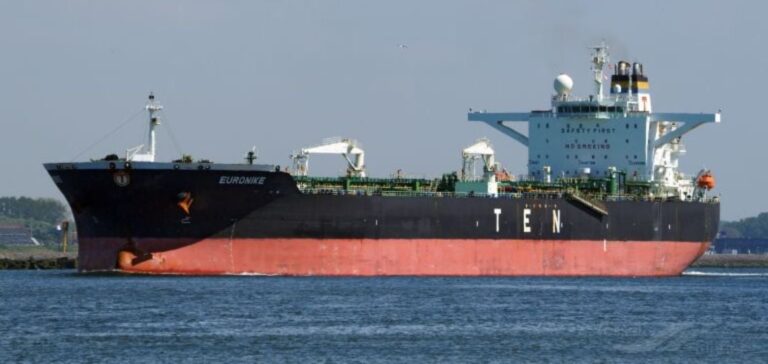The Northern Sea Route (NSR) is experiencing a new dynamic with the passage of the oil tanker Prisma, managed by the Azerbaijani company Vista Vvave Shipmanagement.
This is the first time that a non-Russian vessel, operating under the flag of the Cook Islands, has used this route traditionally dominated by vessels from Sovcomflot, Russia’s leading shipping company.
The Prisma carries crude oil loaded at the port of Primorsk in Russia, and is currently in transit in the Kara Sea, bound for China. This expansion of traffic on the NSR comes at a time when Moscow is seeking to promote this route as a strategic alternative to the Suez Canal, particularly for energy exports to Asia.
However, navigation on this route remains complex and requires continuous assistance, provided by icebreakers, to cross the Arctic ice.
The Prisma, an almost 20-year-old vessel with an ICE 1C classification, is a good illustration of the technical and logistical challenges operators face when using this route.
Russian domination and economic challenges
Despite the Prisma’s incursion, the Northern Sea Route is largely dominated by Sovcomflot.
In 2024, six Sovcomflot-managed tankers, representing some 600,000 tonnes of crude oil, have chosen this route for their voyages to Chinese ports.
Of these, the Olympiysky Prospect is close to arriving in Tianjin, while others such as the NS Arctic and SCF Baltica are en route to various destinations in China.
However, despite this increased activity, the cost of shipping on the NSR remains a major obstacle.
Transit costs on this route are higher than on the Suez Canal, due to the ice-breaking services required and the specific authorizations required by Rosatom, the Russian nuclear agency that oversees the NSR.
A trader on the Russian oil market points out that, although the NSR reduces transit time, the additional costs make operators think twice about the profitability of this route, limiting it mainly to exports to China, where energy demand offsets these extra costs.
Outlook and market implications
Vista Vvave Shipmanagement’s decision to use the NSR could mark the beginning of a diversification in the use of this route, hitherto dominated by Sovcomflot.
However, the NSR’s economic appeal remains limited by high costs and logistical challenges.
While Russia continues to promote this route, it is clear that only specific markets, such as China, will find an economic advantage in using it.
How this situation evolves will depend on the Russian authorities’ ability to reduce operating costs and improve infrastructure, making this route more competitive with traditional routes.
The current situation demonstrates that the NSR, while attractive in terms of reduced transit times, remains a logistical and financial challenge for the majority of shipping operators.






















